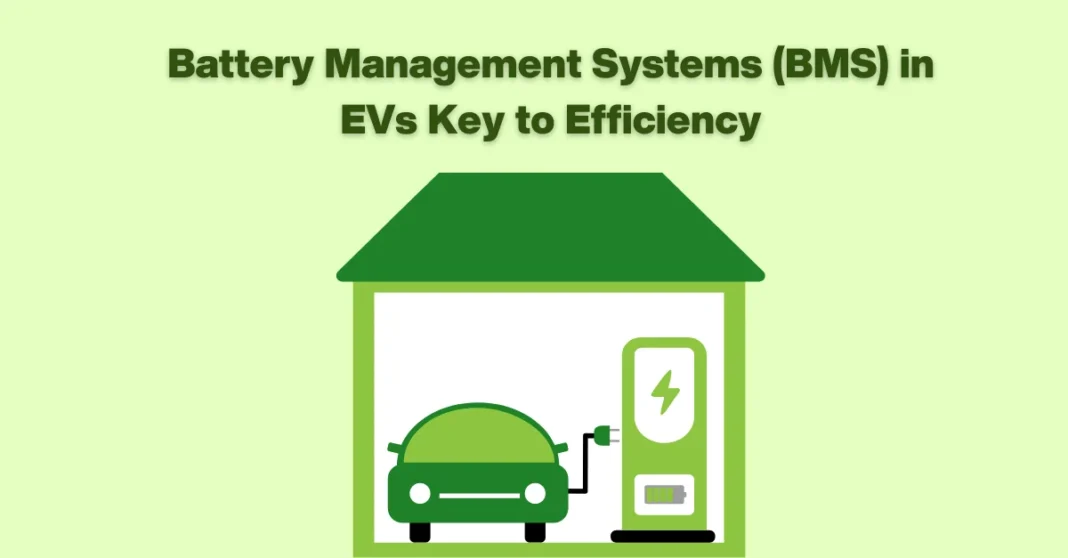Electric Vehicles (EVs) have become a symbol of the future of sustainable transportation. However, the performance, safety, and longevity of these vehicles largely depend on one crucial component: the battery. While batteries have a central role, it’s the Battery Management System (BMS) that ensures the battery operates at its optimal performance.
What is a Battery Management System (BMS)?
A Battery Management System (BMS) is an integrated electronic system that manages and monitors the performance of an electric vehicle’s battery. It is responsible for ensuring that the battery operates in a safe and efficient manner. The BMS communicates with both the battery and the vehicle’s control systems, continuously evaluating the battery’s state and performance.
Key tasks of a BMS include:
- Monitoring the state of charge (SOC) and state of health (SOH) of the battery.
- Protecting the battery from overcharging, overdischarging, and overheating.
- Balancing the charge across the battery cells for optimal performance.
Key Functions of BMS in EVs
1. Optimizing Battery Performance
The most critical function of a BMS is to monitor the State of Charge (SOC) and State of Health (SOH) of the battery. SOC refers to the current charge level of the battery, while SOH measures the battery’s overall health and its ability to hold charge over time. By balancing the charge between individual cells, the BMS ensures that each cell operates within its optimal voltage range, preventing overcharging or undercharging. This leads to a more efficient and reliable battery performance.
2. Ensuring Safety
Safety is a priority in EV design, and the BMS plays a vital role in preventing hazards like battery overheating, overcharging, and short circuits. It continuously monitors parameters such as voltage, temperature, and current. If any of these parameters fall outside the safe operating range, the BMS will trigger corrective actions, such as limiting the charging rate or disconnecting the battery. In doing so, it protects the battery and the vehicle from damage, fire risks, and potential accidents.
3. Enhancing Charging Efficiency
Charging EVs efficiently is crucial to reducing downtime and enhancing user experience. A BMS optimizes the charging cycle, ensuring that the battery charges in the most efficient manner without damaging its cells. For instance, it can slow down the charging rate as the battery nears full charge to prevent overheating and to ensure that the charging process is stable and safe. This smart management helps reduce energy waste and improves the overall efficiency of the charging process.
4. Extending Battery Life
The lifespan of an EV battery is a major concern for consumers and manufacturers alike. BMS plays an essential role in prolonging the battery’s life by preventing deep discharges and overcharging. By constantly monitoring the battery’s health and maintaining it within its optimal voltage range, the BMS ensures that the battery remains functional for a longer period. This reduces the frequency and cost of battery replacements, which is a key factor for EV owners and businesses with fleets.
5. Balancing Cells for Optimal Efficiency
Batteries are made up of multiple cells, and each cell can have slight differences in charge capacity. A BMS ensures that the charge is evenly distributed across all cells in the battery pack, a process known as cell balancing. Without this function, some cells could become overcharged while others remain undercharged, leading to inefficient energy storage and reduced battery life. By keeping all cells balanced, the BMS ensures that the entire battery operates at its maximum efficiency, improving both performance and lifespan.
How BMS Improves Overall EV Efficiency
The overall efficiency of an electric vehicle is deeply linked to how well its battery is managed. The BMS ensures that the vehicle’s power system works in harmony with the battery by providing real-time data about its condition. This data allows the vehicle’s powertrain system to optimize energy usage, leading to better range and overall vehicle performance.
For instance:
- If the BMS detects a low state of charge in one or more cells, it can adjust the energy output from the battery to prevent further energy depletion.
- The BMS can also manage the charging process to avoid excessive energy consumption, ensuring that the vehicle consumes the least amount of power necessary for each journey.
In essence, BMS not only makes the battery more efficient but also boosts the overall energy efficiency of the entire vehicle.
The Future of Battery Management Systems in EVs
As the EV industry continues to evolve, so too does the role of Battery Management Systems. Future developments in BMS technology could include:
- AI-Driven Systems: Artificial intelligence (AI) could be integrated into BMS to better predict battery wear and failure, offering proactive solutions before issues arise.
- Wireless BMS: Advancements in wireless communication may lead to more flexible and efficient BMS designs, reducing the complexity of wiring and improving the overall reliability of EVs.
- Integrated Energy Systems: As vehicles become more integrated with renewable energy sources, BMS could play a key role in energy storage and management, optimizing not just the vehicle’s energy use but also its interaction with home or grid energy systems.
Conclusion
Battery Management Systems (BMS) are a critical piece of technology in electric vehicles, playing a crucial role in optimizing battery performance, ensuring safety, and extending battery life. As EV technology continues to advance, BMS will only become more sophisticated, offering even greater efficiency and reliability for both consumers and manufacturers.
For EV owners and manufacturers alike, understanding and investing in a high-quality BMS is key to maximizing the efficiency and longevity of electric vehicles, making them a sustainable and cost-effective transportation solution for the future.
#BatteryManagementSystem #EVTechnology #ElectricVehicles #BMS #EVInnovation #EVInnovation #BatteryTech

